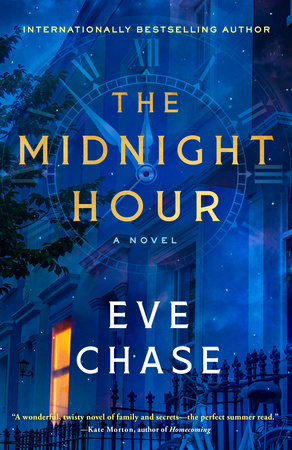Excerpt
The Midnight Hour
1MaggieParis, May 22, 2019Any danger has surely passed. Cycling into the unfolding Paris morning, Maggie can breathe easily again. She’d been dreading yesterday’s anniversary. But here she is on the other side. Weirdly fine. Maggie knows, as people who have survived things do, that fine is everything. A quiet triumph. She takes nothing for granted. Not the sun glitter on the Seine. The rhythmic brush of a horse-chestnut leaf, stuck in her front bicycle wheel. The waft of coffee. Paris. Life.
Rising from the saddle, Maggie stands on the pedals and cycles faster, her blouse sleeves swelling with air, the river’s truffle tang. Her oversize sunglasses—Le Bon Marché sale, a rare present to herself—slip down her nose and she thumbs them up. The bicycle wobbles.
Although capricious, with iffy brakes, Maggie’s secondhand vélo is the perfect red of a Parisian’s lipstick, so she loves it. Bouncing inside its front basket is an unraveling straw tote, flopping open to reveal a baguette, a honking Camembert, and a stuffed bag of peaches, perilously perched and seeping in the early-summer heat. Reaching to nudge them back in, Maggie’s fingertips touch their downy skin, and she starts.
Peaches. Something inside Maggie snags, like a chain unexpectedly shifting from one gear to the next. She’d buy her mother peaches at the market. Carry them home in a brown paper bag that would disintegrate in the London drizzle. For a vivid moment, she sees her mother holding a peach in her long, elegant fingers. Her small smile of anticipation.
Thrown by this—how can the past arrive in a bag of peaches?—Maggie swerves to the left, just missing an overtaking cyclist. Over his rattle of fast-fire French, her phone rings. Voicemail nips the call. A second later, it goes again. Since Maggie is incapable of leaving a phone unanswered—a neurosis baked into her two decades earlier—she brakes abruptly by the riverbank, where the young and beautiful smoke and loll, and fishes inside her bag. No caller ID. “Hello?”
“It’s me.”
You. That voice—husky, London—reaches deep inside, steals the air from her lungs. “Hey,” she manages, after a beat, as if they’d last spoken a week ago, not years before.
He’s changed his number since: she’s tried it, more than once, just to see. Maggie is glad she’s never changed hers. So many questions. Is he married? Kids? Would he still fit the lumberjack shirt she keeps hidden at the back of her drawer? All she’s got. No photos: they didn’t back then. She wonders if he dreams like her, bucking out of sleep, that dark bloom of fear and longing.
“How’s things?” he asks, guarded, soft. She can hear a city—oh, God, which city?—churning in the background, another life, impossibly running in parallel to her own.
Midway through nervously rushing an answer—a book deal, a divorce, a move to Paris!—Maggie stops, shocked by the sun-damage freckles on the thirty-eight-year-old hand clasping the bike’s handlebar. How on earth did she get to this age without him?
“Some news, Maggie.” It never was going to be a social call. His voice lowers, hesitates. “About your mother’s old house in Notting Hill.”
A bolt of heat rolls over Maggie. Legs jellied, she clambers off the bike, which crashes down, the peaches leaping from its basket.
“Some new owner is renovating.”
“Right.” Maggie must fight to stay in her hard-won grown-up life. Stop it rupturing.
“In January a basement planning application went in. Maggie, I didn’t contact you because I honestly didn’t think they’d get permission. But . . .” He swallows hard. “They got it.”
She could hang up now, un-hear this. Focus on the boats frilling the silver-green water. The lovers embracing on Pont Neuf.
“There will be digging,” he adds, in case she hasn’t grasped the implications.
Maggie feels lightheaded. Slightly unreal, slightly sick. Despite knowing this day could come, as the years have passed, she’s allowed herself to believe it wouldn’t.
“Still there?”
Maggie whispers, “Yes, yes.” But parts of her are already shearing off, flying over the Seine and the kitten-gray rooftops, drawn back to London, as if trying to recover something. The young Parisians glance over with amused curiosity—what’s with that woman, surrounded by peaches?—and, for the first time in weeks, she feels inescapably, lumpingly English.
“Soon as I find out more, I can let you know.” A moment passes. “If you’d like me to?”
Yes, she’d like that very much. They hover on the line, connected by their silence, their quickening breath, their appalling secret, neither wanting to be the first to hang up. Then, with a click, he’s gone again.




